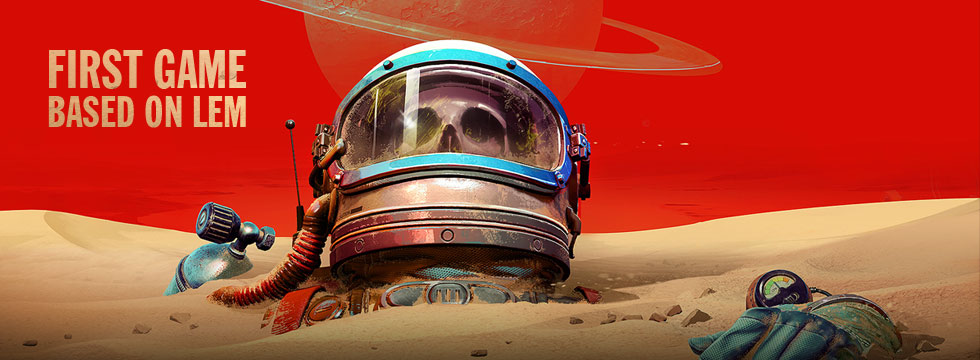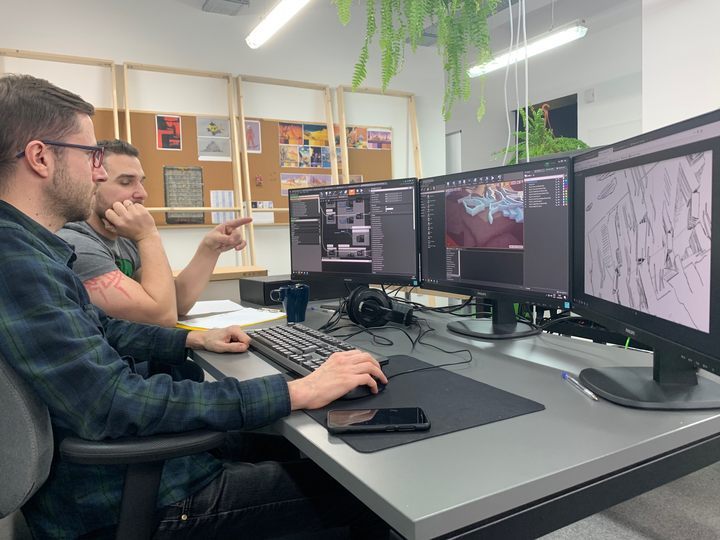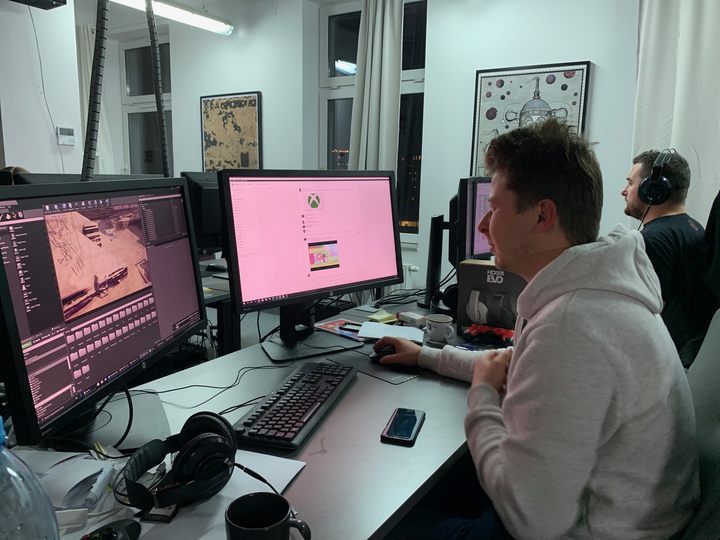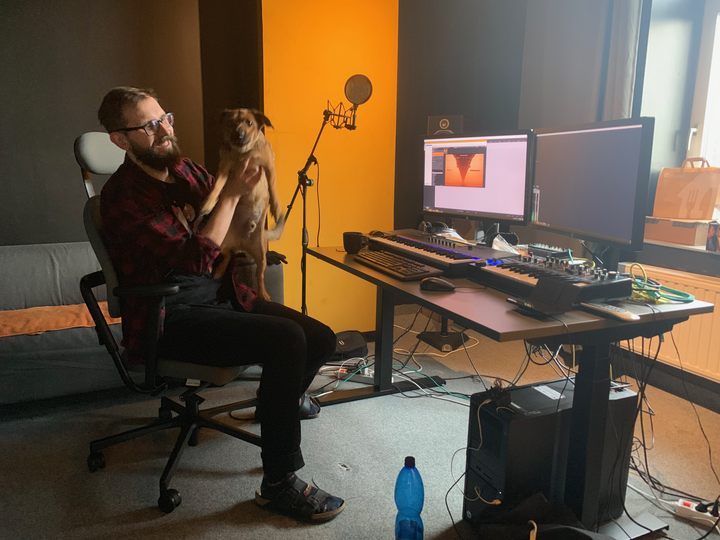What is the game based on Stanislaw Lem's book about?. We talk with devs of upcoming game based on Lem

- Invincible - New Sci-fi Game Based on Lem's Book - Conversation with the Developers
- Retrofuturism and Atom Punk
- What is the game based on Stanislaw Lem's book about?
- People first
What is the game based on Stanislaw Lem's book about?

I can’t say much about what I've seen in the studio. I can only tell you this: the demos I've seen looked very convincing, graphics in particular. The stars and suns on the sky really evoke the atmosphere of a space adventure. The design of vehicles and robots is also extraordinary. All that should make the game quite distinguishable. In the game proper, there's of course no GPS pointer that would indicate the right direction, so it was necessary to use the map and maintain comms with the base. Subsequent locations will be riddled with mysteries and side threads – during exploration, you will encounter derelict robots, and traces of people. The locations – the same ones we read about in the book – will be designed in a way that provides constant opportunities for discovery. These few moments I spent with the game reminded me of how much I look forward to the next role-playing game about space and planets. I hope the new game by Starward Industries will be exactly that.

When I was looking for a good comparison of what Project I is supposed to be, Marek Markuszewski proposed Firewatch, an excellent game, in which the dialog system was a mechanic that actively engaged the player in action. He emphasized, though, that Firewatch is among many games that inspire the team, and that their production will be much more extensive than Capo Santo's adventure. "We want to make the most of the medium. It's strongly interactive, and so we want the player to really participate in the story. Our character won't just be a regular actor that we can either love or hate; we give the player a lot of control over when to speak and what to say.”
In addition, the player's choices will determine not only the endings, but also the relationships between the NPCs, and even influence character development. The devs don't want to give out everything the game has in a single playthrough. They want to create parallel paths and elements that would encourage us to repeat the game. Some decisions are mutually exclusive, so we can miss quite large bits of the story. Exploration full steam!
Interestingly, there are also plans to create lots of optional content in the game, which can have a real impact on the gameplay. This way, we don't mindlessly collect tons of garbage created just to justify achievements and artificially puff up game time. Instead, we get more events and locations. Additional content will also enrich our knowledge of the pivotal problem of the story, and provide new opportunities in the decision-making process. "It's like the work of a scientist. The more data you have, the more precise a theory you can formulate,” says Michal Galek.

There will be some vehicles to facilitate traversing the large, but not completely open world. The developers gave a lot of thought to the size of the world, making sure it serves the story in the best way possible – there's no mistaking when it comes to Project I's priorities. When asked if we're completely defenseless in the game, the devs replied: "It's not a shooter, but there are potentially situations, where the protagonist will have to use some sort of a weapon. But that's not the standard equipment of a scientist." And yes, it is possible to die in the game. In many circumstances – as the creators mysteriously added.
In conclusion, Project I, based on a book by Stanislaw Lem, is a role-playing adventure game that emphasizes exploration, dialogues and plot. Calling it a walking simulator is a bit spiteful, but according to the devs, the game consists of elements of many genres. "We hope that every playthrough of this game you will find on YouTube will be different," Michal Galek told me. The game will not only to tell the story known from Lem's book – it will also complement it, and further explore its tropes. For someone who loves the literature of the Polish writer, this could be one of the highlights of 2021.
